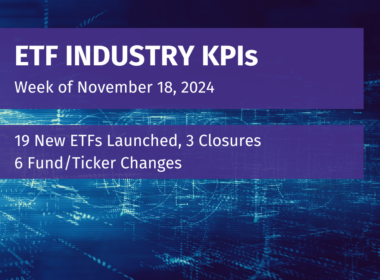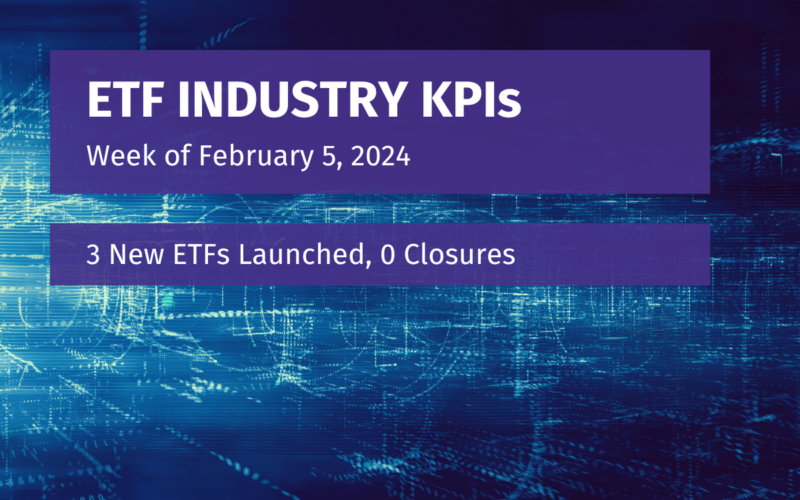The banking industry is back in the spotlight again after New York Community Bank got its credit rating downgraded amid concerns about its commercial real estate exposure. Banks’ overexposure to risky credit is a refrain we’ve heard throughout the past year, and it doesn’t look like it’s going to let up anytime soon. Chris Whalen, the head of Whalen Global Advisors, specializes in the mortgage & banking spaces and joins the ETF Think Tank to offer his expertise on where conditions in these segments of the economy might be headed.
The core of Whalen’s strategy for investing in the banking space involves looking at corporate efficiency, strong operating leverage, and proper governance. On these fronts, he generally only works with the universe of companies that are in the top half of these metrics with their peer groups. If a bank can’t do well from an operating efficiency perspective, that’s a problem. In general, he believes that equity market returns tend to tell you what you need to know.
Whalen believes that people who think there are too many banks, especially the regional ones, don’t understand banking. Small financials tend to do a better job of managing credit, while the big firms tend to just buy loans. Little banks and credit unions are better equipped to do things like call their customers and work with them directly. We actually need simpler institutions.
The regional banks specialize in commercial lending and basic services and there’s certainly credit risk on the commercial side, but the idea that all risk is on the regional bank side is ridiculous. The guys who are strong and taking losses on legacy securities are the ones you want to follow because they’ll work their way out of the hole. Insurers will also end up being stronger once they clean up their balance sheets. Yes, regionals will get hit when commercial is struggling, but they’re better equipped to manage credit losses.
With the struggles in commercial real estate gaining so much attention right now, Whalen notes that last year was all about liquidity and surprise. Today, there’s no surprise. It’s a problem for small banks especially because it’s a concentrated risk, but it’s not just a small bank problem. Some banks are going to work the properties and simply wait, while some will look to dump them. The CRE problem will be with us for a while. It’ll be idiosyncratic and we’ll see lumpy results. We’ve gone from a CRE market where values only go up to one where the assumption is loss. This has the regulators worried.
Is there an opportunity in this space? Whalen thinks that the opportunity is figuring out a way to restructure a lot of CRE in the big cities because the numbers are huge. We might need some type of government-funded entity to start buying up these buildings in order to tear them down and restart. We need change in the commercial space. You can’t turn everything into residential.
When Janet Yellen recently said that regulators were keeping an eye on non-bank mortgage lenders, Whalen thinks she was referring to the FHFA, the regulator for Fannie and Freddie. He notes that when a reverse mortgage lender went under in 2021, the Treasury ended up owning the book and they’ll probably own two more portfolios soon when they fail. The non-bank lenders are actually in better shape and more efficient. There’s such a lack of subject matter expertise in Washington.
Other key takeaways:
- Where should people be targeting? Anything from $10B up to JPMorgan Chase is the prime spot for investors. Anything below that is probably too small.
- The big guys, other than JPMorgan and U.S. Bank, tend to underperform. The street buys size and looks for liquidity. If you want value, look below the top 5 and focus on the top 25.
- Whalen thinks that NYCB would get bought before it fails. It’s too important of an institution to let it dangle. A big bank would probably step in to buy it if things get bad.
- Eventually, the Fed will drop short-term rates, but they don’t control the long end of the curve. Because they need funding through the long end, Whalen thinks long rates will go up. He also doesn’t think the Fed will buy MBS again. Doing everything via Treasury bills during COVID was a mistake, but he understands why they did it because they needed liquidity.
- We need a full credit cycle before we can determine how some of these fintech companies can survive with their technologies.
Disclosure
All investments involve risk, including possible loss of principal.
The material provided here is for informational purposes only and should not be considered an individualized recommendation or personalized investment advice. The investment strategies mentioned here may not be suitable for everyone. Each investor needs to review an investment strategy for his or her own particular situation before making any investment decision.
All expressions of opinion are subject to change without notice in reaction to shifting market conditions. Data contained herein from third-party providers is obtained from what are considered reliable sources. However, its accuracy, completeness, or reliability cannot be guaranteed.
Examples provided are for illustrative purposes only and not intended to be reflective of results you can expect to achieve.
The value of investments and the income from them can go down as well as up and investors may not get back the amounts originally invested, and can be affected by changes in interest rates, exchange rates, general market conditions, political, social, and economic developments, and other variable factors. Investment involves risks including but not limited to, possible delays in payments and loss of income or capital. Neither Tidal nor any of its affiliates guarantees any rate of return or the return of capital invested. This commentary material is available for informational purposes only and nothing herein constitutes an offer to sell or a solicitation of an offer to buy any security and nothing herein should be construed as such. All investment strategies and investments involve risk of loss, including the possible loss of all amounts invested, and nothing herein should be construed as a guarantee of any specific outcome or profit. While we have gathered the information presented herein from sources that we believe to be reliable, we cannot guarantee the accuracy or completeness of the information presented and the information presented should not be relied upon as such. Any opinions expressed herein are our opinions and are current only as of the date of distribution, and are subject to change without notice. We disclaim any obligation to provide revised opinions in the event of changed circumstances.
The information in this material is confidential and proprietary and may not be used other than by the intended user. Neither Tidal nor its affiliates or any of their officers or employees of Tidal accepts any liability whatsoever for any loss arising from any use of this material or its contents. This material may not be reproduced, distributed, or published without prior written permission from Tidal. Distribution of this material may be restricted in certain jurisdictions. Any persons coming into possession of this material should seek advice for details of and observe such restrictions (if any).












